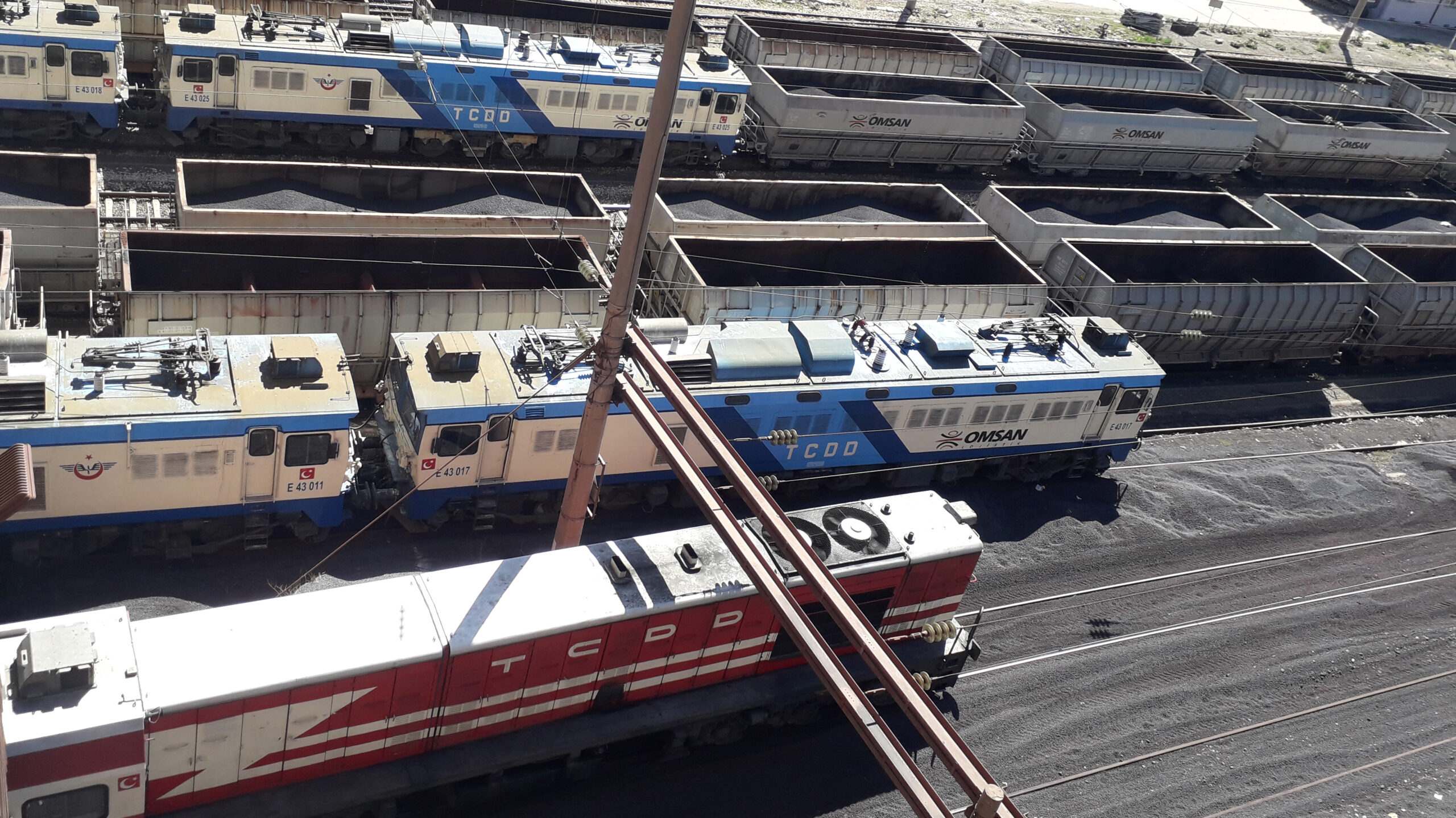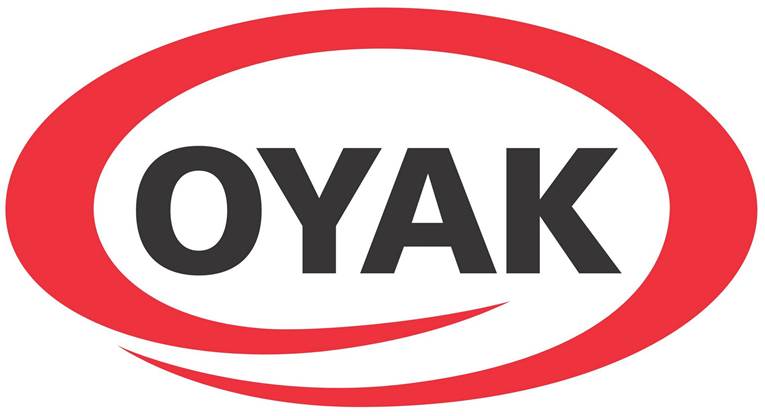What kind of services does OMSAN Logistics offer within the scope of railway transportation? How many different destinations do you offer rail transport services to today? What kind of loads do you carry, with what transit times, from where to where?
As OMSAN Logistics, we act with the vision of becoming a global player and offer high value-added services to our customers. While implementing innovative practices, we continue to work with the aim of being a leading company in its field.
In 2017, we were entitled to be the first private train operator in Turkey to have a railway train operation license. After receiving this document, we first implemented the Demirdağ-İskenderun line ore transportation project. Today, in addition to private train operation on the same railway line, we carry flue dust transportation on Aliağa – Boğazköprü and İskenderun – Boğazköprü lines with TCDD Taşımacılık AŞ trains.
As OMSAN, we provide national and international railway transportation services to our customers with our railway fleet consisting of more than 500 self-owned and rental wagons, 15 rental locomotives and nearly 300 containers. Since 2010, we have been transporting coal, petcoke, ore, clinker, flue dust and coiled sheet metal to various points in Turkey with our domestic rail transportation activities. Within the scope of private train operation, the transit time for ore transports between Demirdağ and İskenderun is 18 hours, and this time is at least 4 hours more advantageous than standard train transports.
With railway transportation services, you can provide your customers with service, time, cost, competition, etc. What advantages do you offer? In this sense, can we learn about your value-added services?
In addition to the cost and time advantage, we provide our customers with safe transportation services in terms of goods and life safety with quality operations. In addition, we can say that the greatest added value we have created is the expansion of railway transportation, which is described as “Green Transportation”. Railway transportation, which makes a significant contribution to environmental cleaning, traffic, and reduction of carbon emissions, also provides benefits for our country in terms of sustainability.
What are your special services for the sectors within the scope of railway transportation? Can you tell us about the special solutions you have developed especially for the automotive industry?
As of 2014, we have put into use multiple modes of transport in our Romania-Turkey import process, which we carry out with our auto-carriers over the road. In this context, the vehicles that were shipped to the port by our auto transport wagons operating between the factory and the port in Romania were brought to Turkey by seaway in the continuation of the operation. The commissioning of the railway application also enabled us to serve the carbon emission reduction targets of many vehicle manufacturer brands.
In 2018, we broke new ground in this field by starting to use the railway alternative in the dealer distribution processes of finished vehicles with regular weekly flights. We carried out the dealer distribution of the vehicles brought to Turkey from abroad with the help of the car transportation wagons and the flights organized on the Köseköy-Yenice line. In order to manage the volume increase in the finished vehicle market in 2020, we started to produce the same model with covered wagons belonging to TCDD Taşımacılık AŞ.
This year, we started to receive the results of our project, which we started to work on in 2020. We broke new ground in the world with our automobile transportation project from Europe to Asia via Marmaray. With our 550-meter-long auto transport train, we transported more than 200 cars loaded from Romania through Marmaray, which has the world’s deepest immersed tube tunnel used by rail systems with a depth of 60 meters, to Izmit Köseköy. Thus, we became the owner of the title of the first company in the world to transport automobiles under the sea at this depth. We ensured the safe delivery of cargoes to their destinations with intercontinental rail transport. After this successful expedition, we continue our preparations for the organization of new international train services.
Did contactless trade, exchange rate increases in exports, transit documents on highways and waiting times at border gates increase the demand for rail transport? How did this situation affect the operations of OMSAN Logistics? How much freight did you transport by rail in 2020?
Although the share of the railway, which is gaining more and more importance all over the world, in Turkey’s export shipments is still below 1%, we can say that this rate is on the rise. The closure of the borders on the highways and the problems of transit documents increased the interest in the railway during the pandemic. The start of the normalization process in June and the acceleration of exports added a positive momentum to the railway.
As OMSAN Logistics, we transported more than 3.5 million tons of freight by rail in 2020.
During this period, important projects were put into use in Turkey-Europe, Turkey-China and China-Turkey-Europe lines. In 2021 and beyond, rail transport is expected to play a more important role than ever in exports to the Middle East, Caucasus, South East Europe and Central Europe. What kind of steps does OMSAN Logistics plan to take on these issues?
As OMSAN Logistics, we aim to increase the weight of the environmentally friendly and competitive mode of transportation in our portfolio, which is among our integrated services together with our digital and environmental business models, which has a limited number of service providers in Turkey.
Recently, we have ensured that more than 200 vehicles are safely transported to their destinations from Romania by intercontinental rail transport at one time, without transferring or changing vehicles. We will accelerate international railway transportation by using this safe, environmentally friendly and fast transportation advantage offered by Marmaray.
Our companies in France, Romania, Russia, Morocco and Kazakhstan, which we established with the vision of carrying our integrated logistics services to a global dimension and which are among our important investments, give us the power to have a say in a large geography. With these investments, which offer the advantage of closely monitoring industry trends, we strengthen our presence abroad and reach many customers who want to receive logistics services. In this sense, considering the increasing importance of the railway, we plan to expand our service network in different geographies with our companies abroad and to increase railway transportation within the scope of our strategic targets.
What is the share of railway transportation in your total business volume? What are the projects on your agenda in 2021 and beyond, and what are your growth targets?
Railway transportation will be one of the most preferred alternatives in the upcoming period. By adhering to the medium and long-term strategy plans of our company in 2021 and beyond, we will continue to be the pioneer of innovative practices in the sector and contribute to the development of our sector. We will expand our range of integrated services with the aim of becoming a global logistics service provider beyond being a national logistics company. By keeping our focus on digitalization, customer satisfaction and trained human factor in all our business processes; We will continue our sustainable growth by realizing our targets to increase the share of our railway operations both abroad and domestically.
What are the main problems experienced in this process in railway transportation? Is there a problem of insufficient capacity in the face of increasing demand?
Long-term strategies need to be created to meet the increasing demand in the railway. The pandemic has shown us the importance of the railway, as well as making us see that the problems of infrastructure and equipment deficiency that need to be improved for better service should be given priority. In Turkey, very important studies were carried out for rail passenger transportation. Marmaray started a new era in railway transportation. In the operational process; With the addition of intermediate transportation, loading-unloading, lashing, etc. services, the costs in rail transportation are increasing. We think that the private sector should be supported with incentives to invest in this area.


